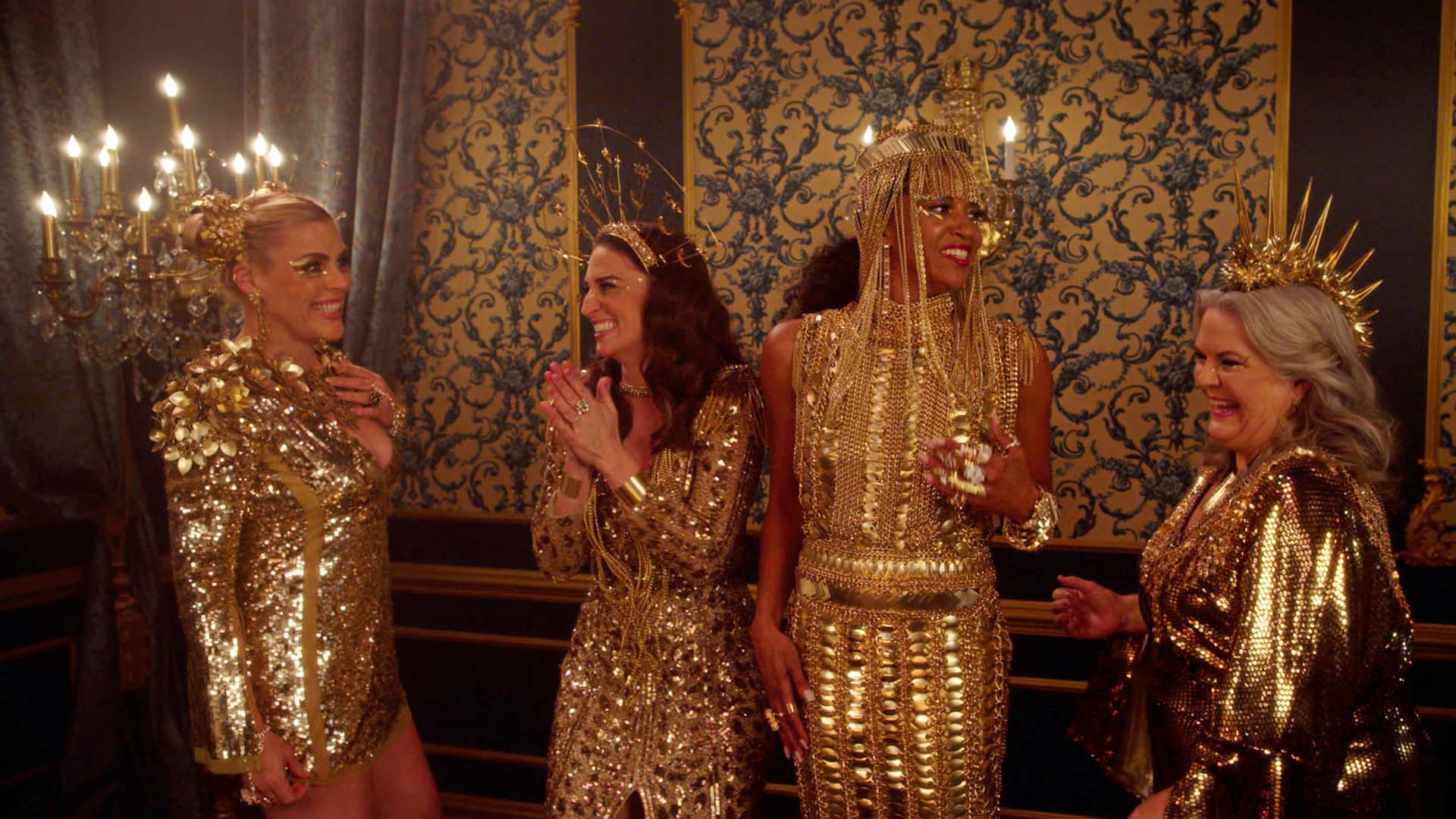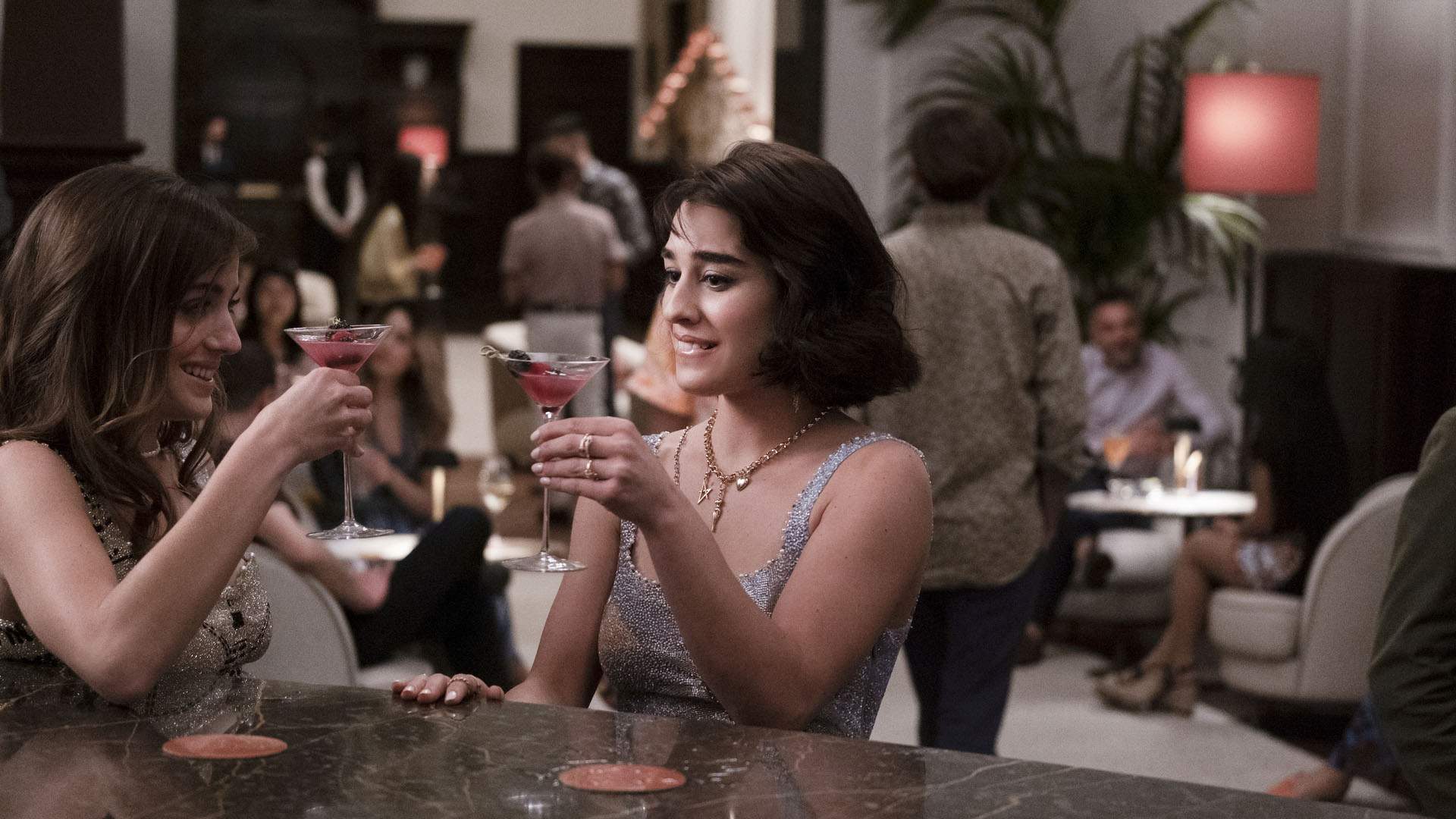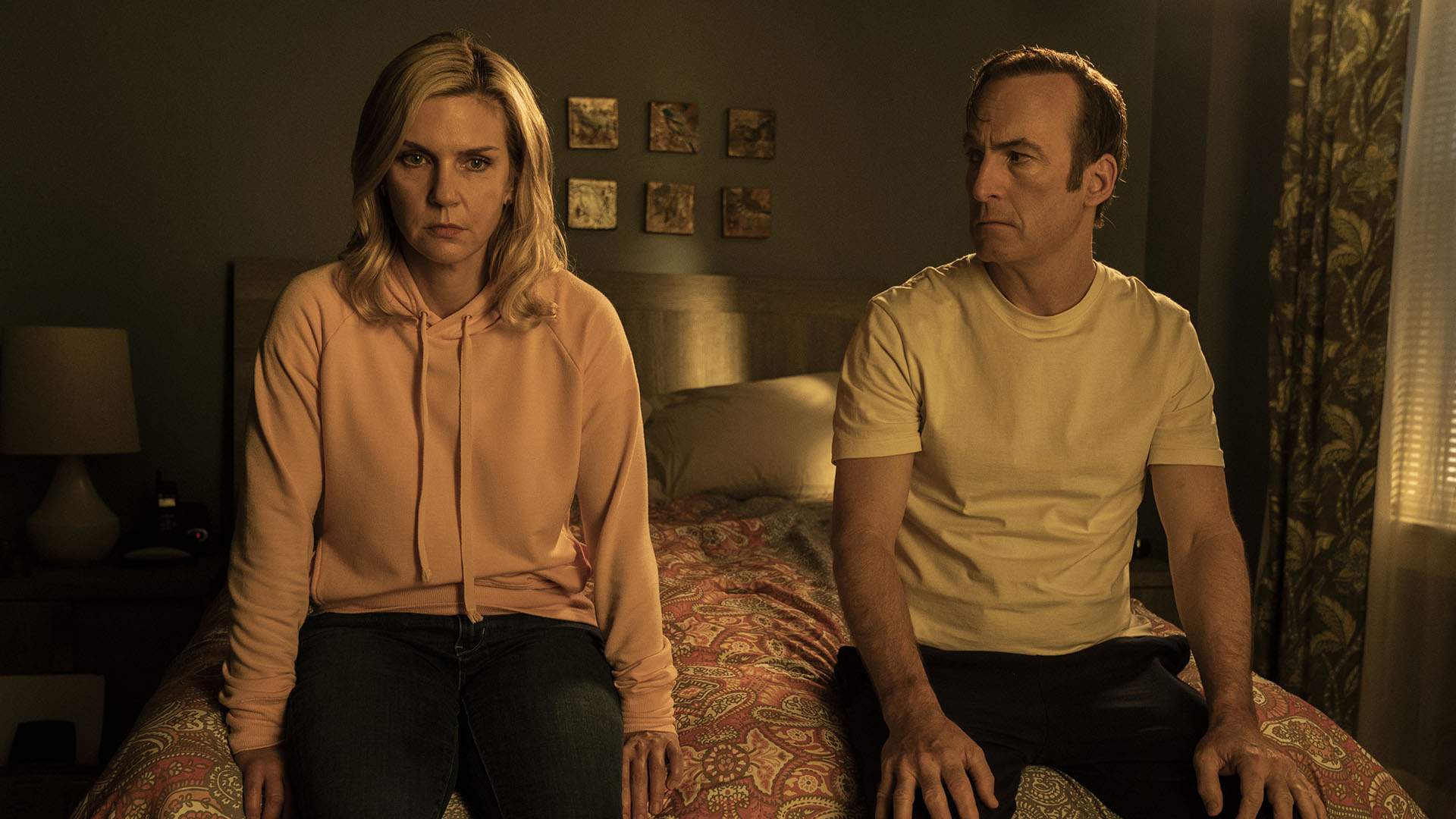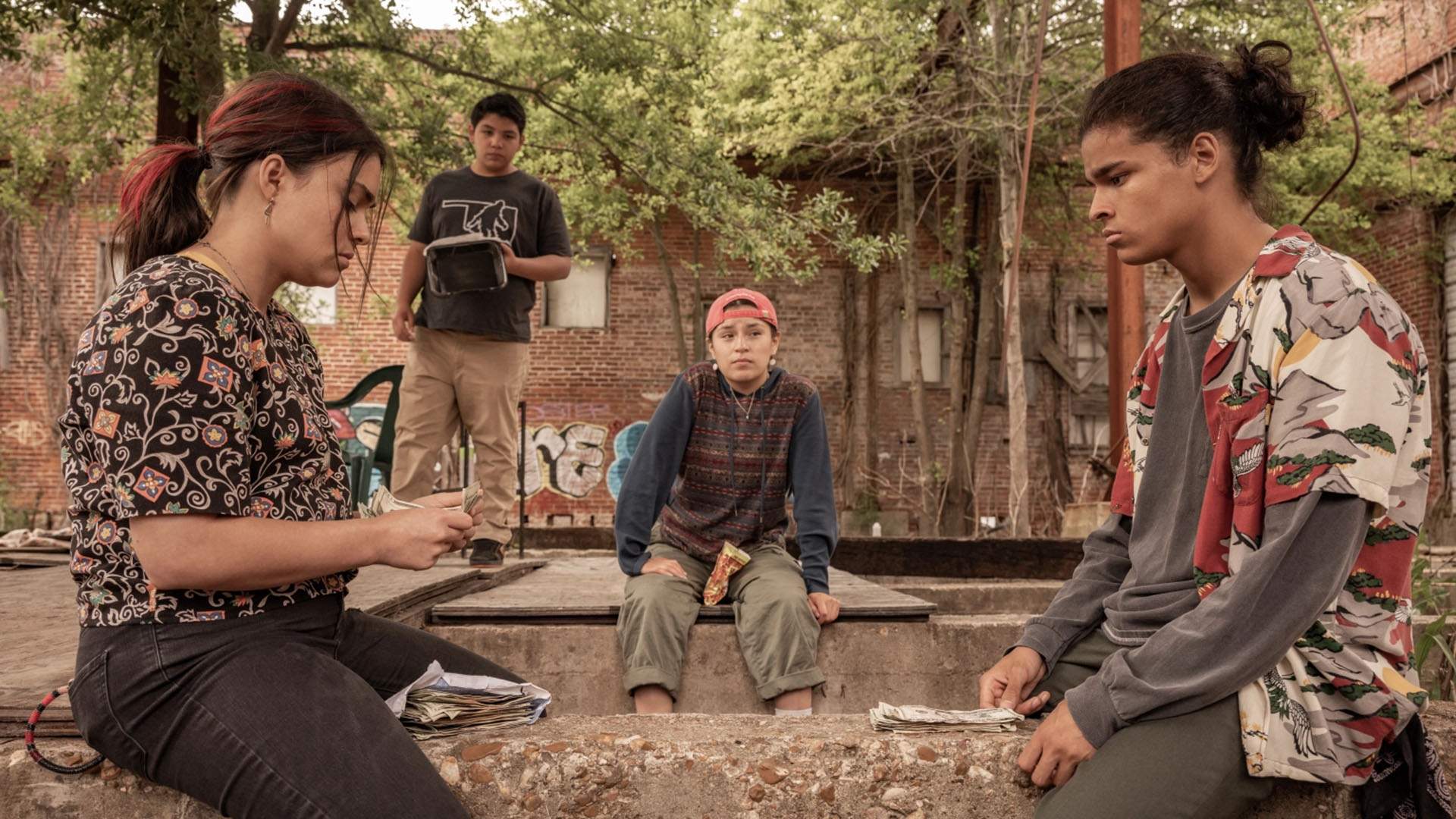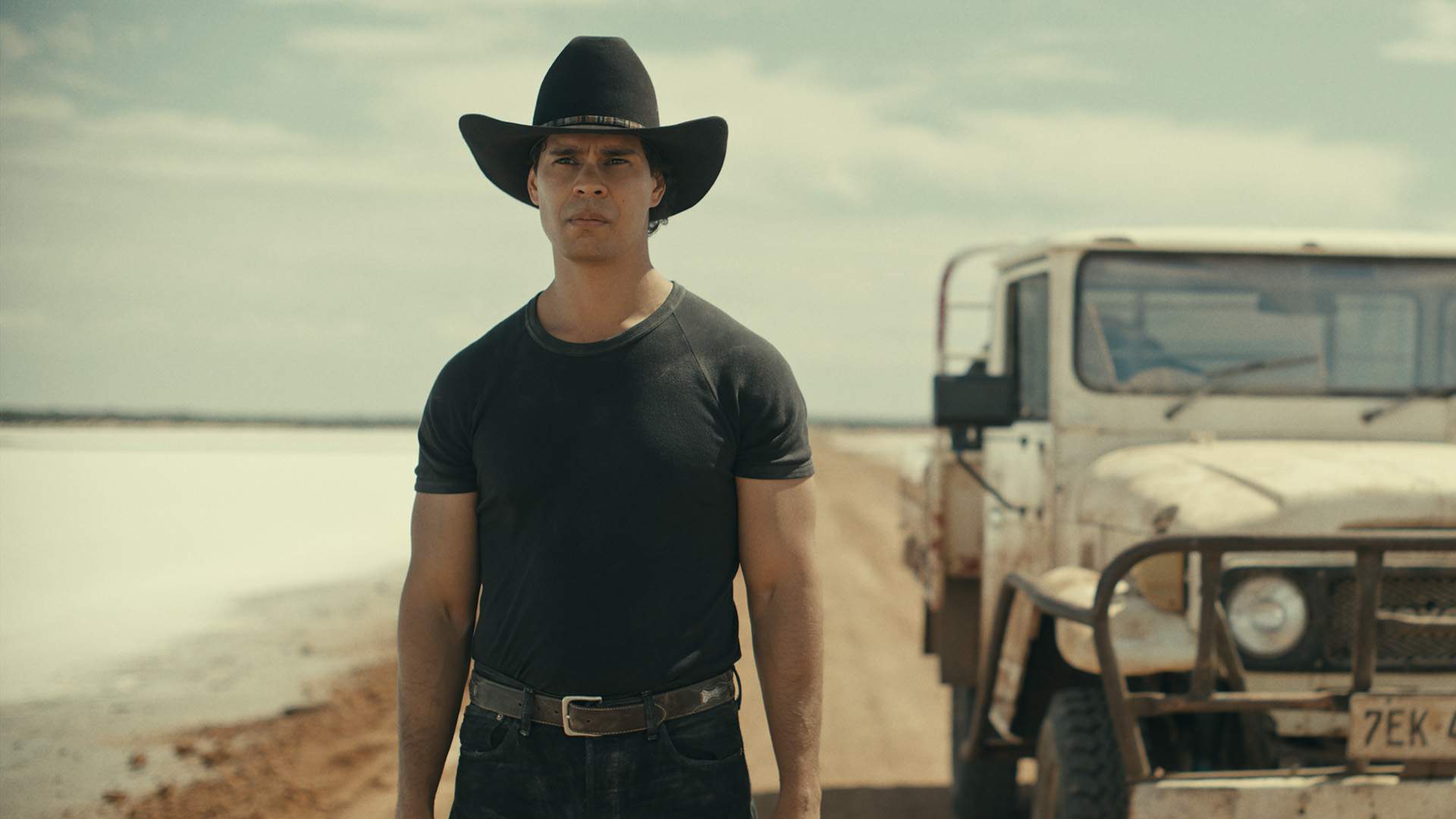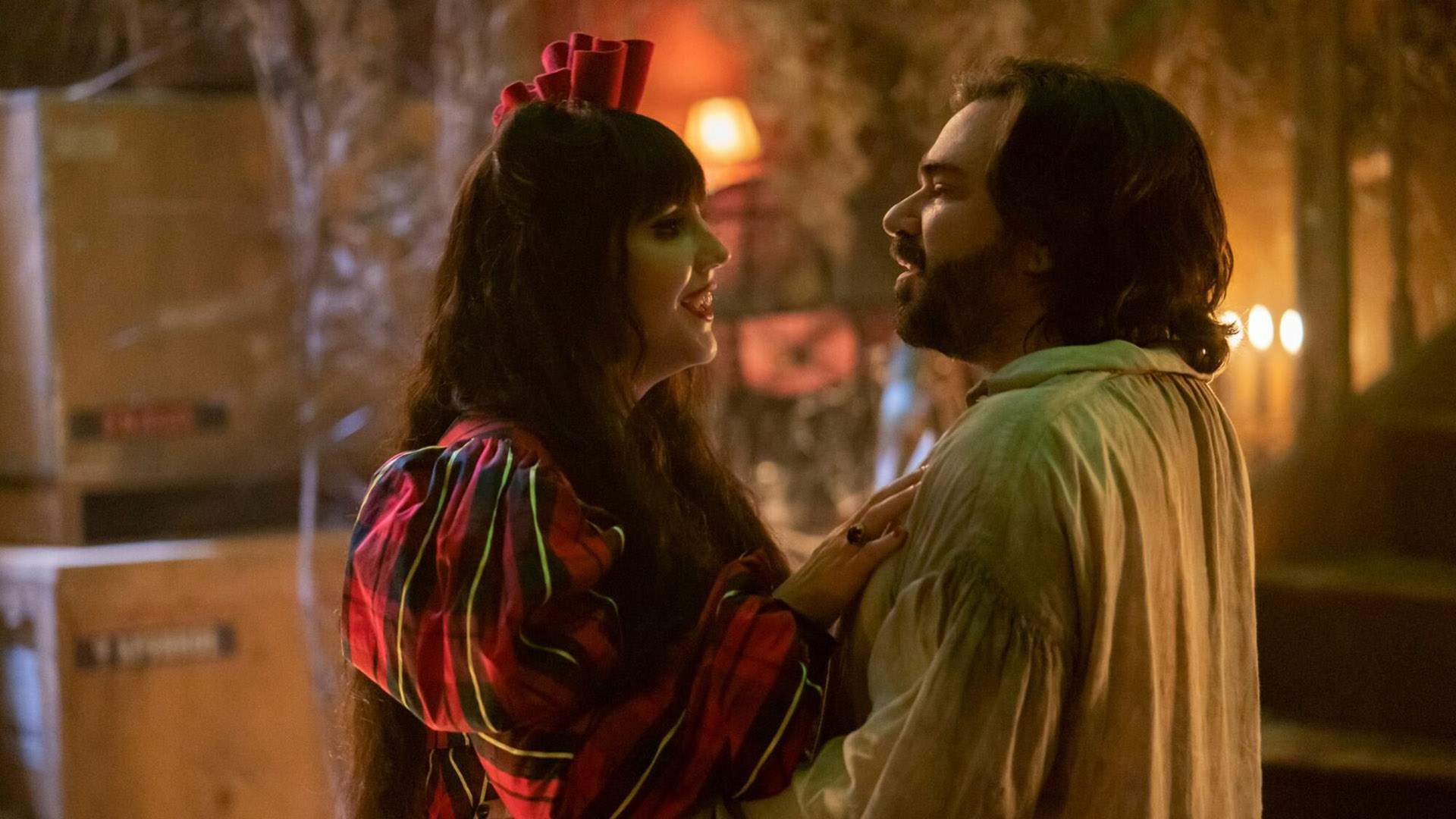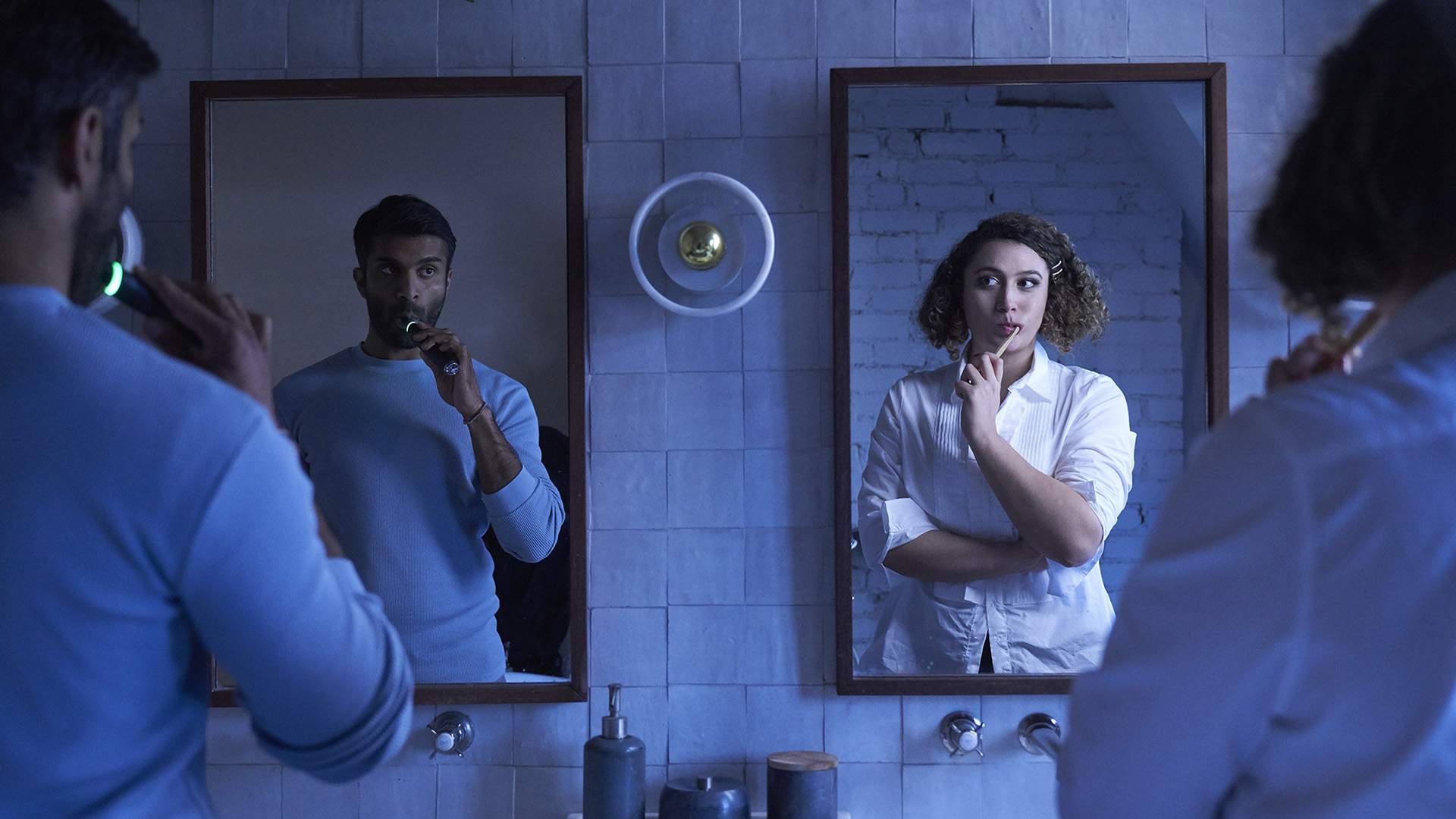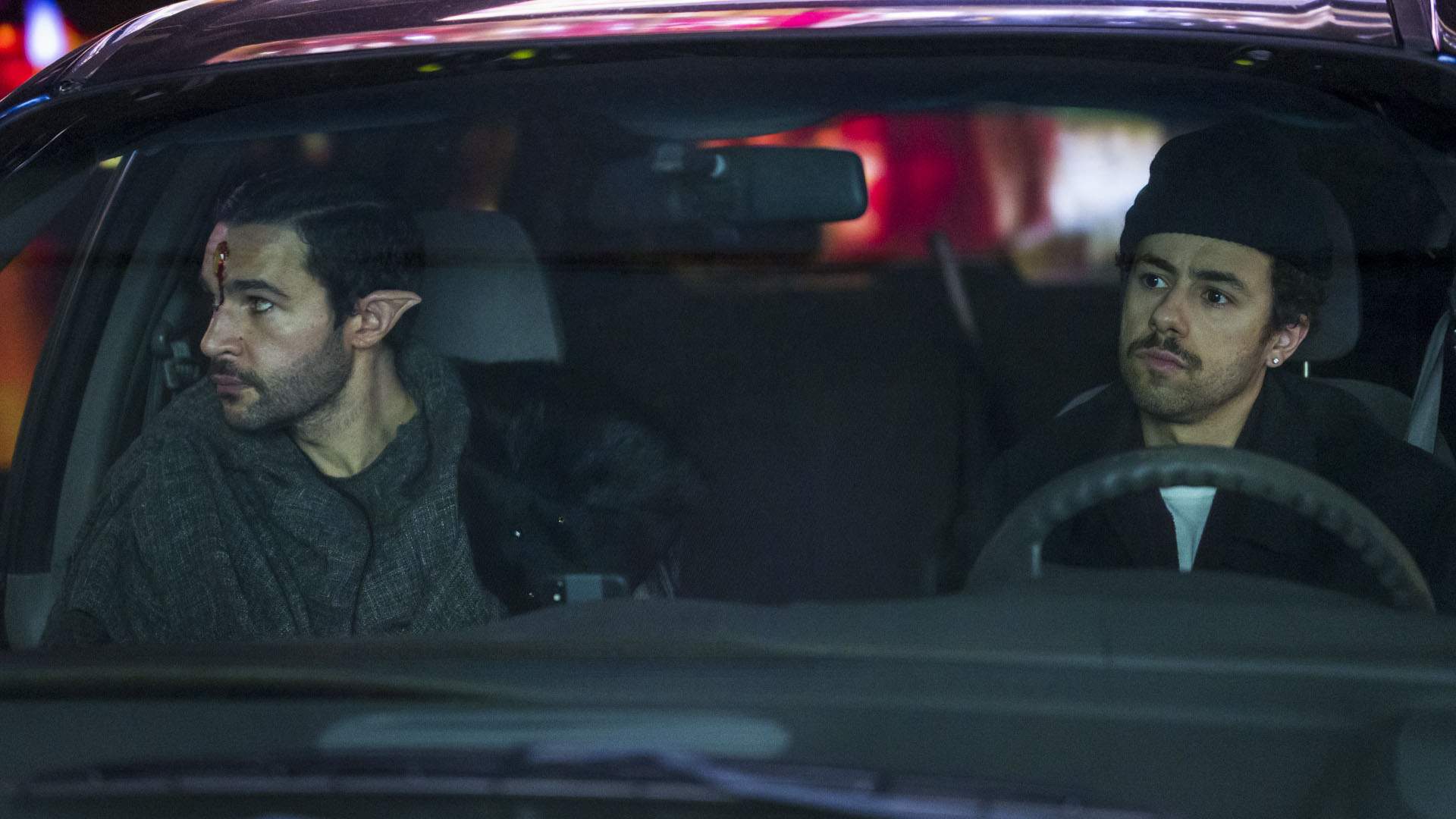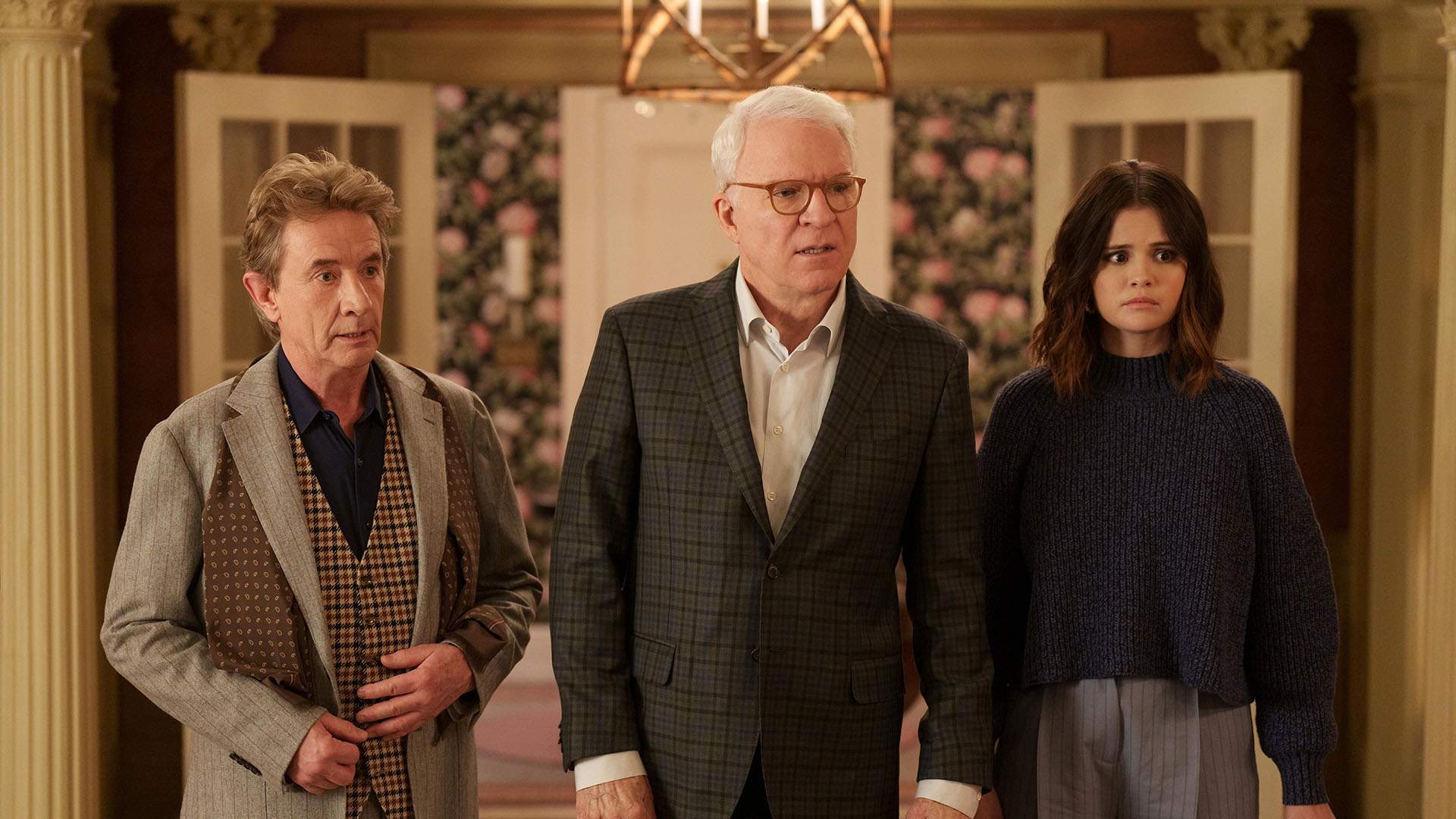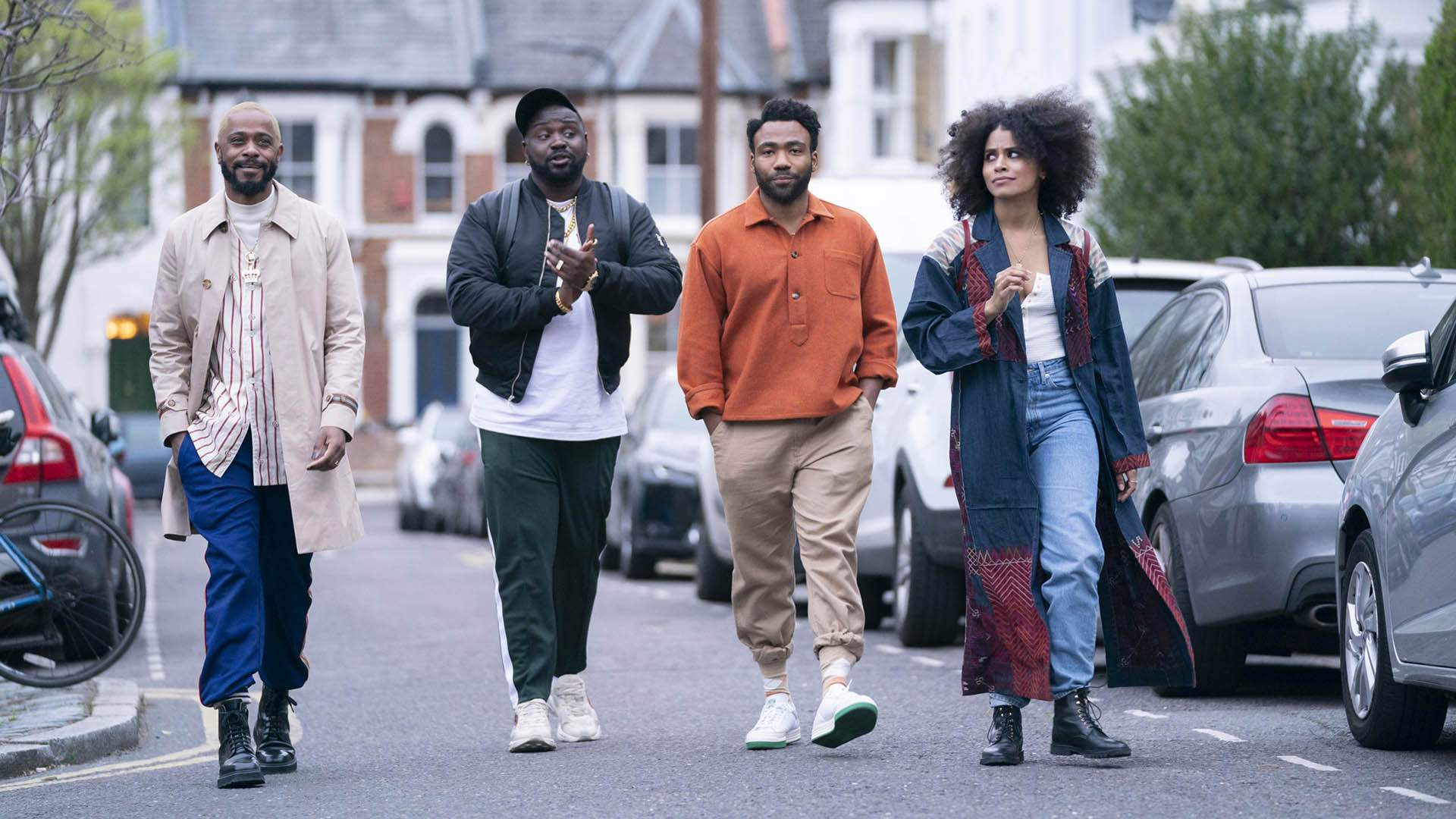The 15 Best Returning TV Shows of 2022
This year's returning small-screen highlights include exceptional crime dramas, savvy comedies, mind-bending animation and playful murder-mysteries.
Perhaps it's because we watch them in our homes, and in our lounge rooms and bedrooms where we're at our comfiest. Maybe it's because spending hours getting to know on-screen characters makes us feel like we know them. Either way, a beloved TV show is like an old friend — we miss them when they're gone and we can't wait for them to return.
In 2022, including after hefty pandemic-related delays in some cases, the small screen welcomed back a lengthy list of already-proven hits. Some served up second seasons as ace as their first. Others have several years worth of past ace episodes under their belts (or in their coffins). And, because all good things really do come to an end, a few said goodbye. Whichever category fits whichever show, the past year hasn't been short on excellent TV among repeat players, spanning everything from crime dramas and savvy comedies through to mind-bending animation and playful murder-mysteries.
Midyear, we rounded up our standout shows between January and June. A number held their place in our hearts over the full year — but they have new company. Ready for end-of-year catch-ups and 2023 revisits, here are the best 15 returning TV shows that hit television and streaming across 2022.

BETTER CALL SAUL
The best show on television for the past seven years — other than the one-season return of Twin Peaks — came to an end in 2022. Viewers knew this was coming but it's still monumental, especially given that Better Call Saul is the spinoff to an also-phenomenal series. Alas, unlike when Breaking Bad wrapped, there's no future immediately in sight for this excellent franchise. Perhaps that's fitting; everything has to fade away at some point, including the canny and resourceful run of an Albuquerque-based lawyer born Jimmy McGill (Bob Odenkirk, Nobody), nicknamed 'Slippin' Jimmy' during his early con-artist days and rebadged Gene Takavic when he flees for a Cinnabon-serving new Nebraskan life. Of course, this franchise best knows him as Saul Goodman after he leans into shady criminal law with well-oiled charm, becoming a charismatic but shifty defence attorney aiding Walter White (Bryan Cranston, Your Honor) and Jesse Pinkman (Aaron Paul, Westworld).
Thanks to Breaking Bad and its gripping New Mexico-set crime-drama antics, we knew where Saul's choices were heading. Better Call Saul's sixth season reckons with that knowledge. It interrogates it, toys with it and expands upon it as well. But in the first trailer for the show's swan song, which was broken into two parts — the first started in April, the second returned in July — fellow Breaking Bad favourite-turned-Better Call Saul key player Mike Ehrmantraut (Jonathan Banks, The Comey Rule) might've said it best. "Whatever happens next, it's not gonna go down the way you think it is," the ex-cop advised. How true that proved as creator Vince Gilligan chronicled life's bleak and heartbreaking realities via a meticulous and twisty character study, including the fates awaiting Kim Wexler (Rhea Seehorn, Veep), Salamanca family footsoldier Nacho Varga (Michael Mando, Spider-Man: Homecoming), and Hector Salamanca's (Mark Margolis, Snowpiercer) alluringly crafty nephew Lalo (Tony Dalton, Hawkeye). TV rarely gets any better than this, and didn't in 2022.
Better Call Saul streams via Stan. Read our full review of season six.

THE WHITE LOTUS
Lives of extravagant luxury. Globe-hopping getaways. Whiling away cocktail-soaked days in gorgeous beachy locales. Throw in the level of wealth and comfort needed to make those three things an easy, breezy everyday reality, and the world's sweetest dreams are supposedly made of this. On TV since 2021, HBO's hit dramedy The White Lotus has been, too. Indeed, in its Emmy-winning first season, the series was a phenomenon of a biting satire, scorching the one percent, colonialism and class divides in a twisty, astute, savage and hilarious fashion. It struck such a chord, in fact, that what was meant to be a one-and-done limited season was renewed for a second go-around, sparking an anthology. That Sicily-set second effort once again examines sex, status, staring head-on at mortality and accepting the unshakeable fact that life is short for everyone but truly sweet for oh-so-few regardless of bank balance — and with writer/director/creator Mike White (Brad's Status) still overseeing proceedings, the several suitcase loads of smart, scathing, sunnily shot chaos that The White Lotus brings to screens this time around are well worth unpacking again.
Here, another group of well-off holidaymakers slip into another splashy, flashy White Lotus property and work through their jumbled existences. Another death lingers over their trip, with The White Lotus again starting with an unnamed body — bodies, actually — then jumping back seven days to tell its tale from the beginning. Running the Taormina outpost of the high-end resort chain, Valentina (Sabrina Impacciatore, Across the River and Into the Trees) is barely surprised by the corpse that kicks off season two. She's barely surprised about much beforehand, either. That includes her dealings with the returning Tanya McQuoid-Hunt (Jennifer Coolidge, The Watcher), her husband Greg (Jon Gries, Dream Corp LLC) and assistant Portia (Haley Lu Richardson, After Yang); three generations of Di Grasso men, aka Bert (F Murray Abraham, Guillermo del Toro's Cabinet of Curiosities), Hollywood hotshot Dominic (Michael Imperioli, The Many Saints of Newark) and the Stanford-educated Albie (Adam DiMarco, The Order); and tech whiz Ethan (Will Sharpe, Defending the Guilty) and his wife Harper (Aubrey Plaza, Best Sellers), plus his finance-bro college roommate Cameron (Theo James, The Time Traveller's Wife) and his stay-at-home wife Daphne (Meghann Fahy, The Bold Type).
The White Lotus streams via Binge. Read our full review of season two.

RESERVATION DOGS
One of the best new TV shows of 2021 returned for a second season in 2022 — and it quickly cemented its spot on this list. That series: the gloriously heartfelt and perceptive Reservation Dogs, which may riff on a Quentin Tarantino movie with its moniker, and also started with a heist when it first hit the screen, but proves dedicated to diving deep into what it's like to be an Indigenous North American teenager today. Bear (D'Pharaoh Woon-A-Tai, Beans), Elora (Devery Jacobs, Rutherford Falls), Willie Jack (Paulina Alexis, Ghostbusters: Afterlife) and Cheese (debutant Lane Factor) are those restless Oklahoma adolescents, and they've shared a California dream since the show began. But when the first season wrapped up with a tornado, as well as a figurative storm of hard truths and buried feelings, the gang's relocation fantasy didn't play out as expected. The lure of family and culture remained strong, as did holding onto a past that's brought happiness as well as pain (getting a fresh start after losing a friend is a big motivation for their escape plan). That said, Elora still attempts to go anyway.
In season two, the more things change, the more they stay the same — until they don't. For Bear, Willie Jack and Cheese, staying on the reservation requires facing life on the reservation. For Elora, being on the road with enemy-turned-travelling companion Jackie (Elva Guerra, Dark Winds) gets tumultuous. Made with such an evident commitment to minutiae, and to feeling lived-in at every moments, Reservation Dogs spins both its episodic stories and its long-running coming-of-age arcs, themes and emotions into something wonderful again and again. Co-creator/executive producer/writer Sterlin Harjo (Mekko) deserves all the kudos that can be showered his way, and so does Taika Waititi as one of the series' fellow creators, executive producers and writers. There are many reasons to be thankful for the New Zealand filmmaker as his resume keeps attesting (including fellow recent sitcom Our Flag Means Death); however, using his fame to help bring this insightful gift into the world is one of them.
Reservation Dogs streams via Binge. Read our full review of season two.
BARRY
Three seasons into the sitcom that bears his name, all that Barry Berkman (Bill Hader, Noelle) wants is to be an actor — and to also no longer kill people for a living. That's what he's yearned for across the bulk of this HBO gem, which has given Saturday Night Live alum Hader his best-ever role; however, segueing from being an assassin to treading the boards or standing in front of the camera is unsurprisingly complicated. One of the smartest elements of the always-fantastic Barry is how determined it is to weather all the chaos, darkness, rough edges and heart-wrenching consequences of its central figure's choices, though. That's true of his actions not only in the past, but in the show's present. Hader and series co-creator Alec Berg (Silicon Valley) know that viewers like Barry. You're meant to. But that doesn't mean ignoring that he's a hitman, or that his time murdering people — and his military career before that — has repercussions, including for those around him.
One of the most layered and complex comedies currently airing, Barry's third season is as intricate, thorny, textured and hilarious as the first two. Indeed, it's ridiculously easy to see how cartoonish its premise would be in lesser hands, or how it might've leaned on a simple odd-couple setup given that Anthony Carrigan (Bill & Ted Face the Music) plays Chechen gangster Noho Hank with such delightful flair. But Barry keeps digging into what makes its namesake tick, why, and the ripples he causes. It does the same with his beloved acting teacher Gene Cousineau (Henry Winkler, The French Dispatch) as well. With visual precision on par with Breaking Bad and Better Call Saul, it's also as phenomenal at staging action scenes as it is at diving deep into its characters — and, as every smartly penned episode just keeps proving, it's downright stellar at that.
Barry streams via Binge. Read our full review of season three.

MYSTERY ROAD: ORIGIN
Origin stories: everyone's getting them. Caped crusaders like Batman and Spider-Man have several; Hercule Poirot's moustache even has its own. Originally played by Aaron Pedersen on both the big and small screens, Mystery Road's Jay Swan doesn't particularly need one, given that plenty about why he's the man and detective he is, and the balancing act he's forced to undertake as an Indigenous cop as well, has already been teased out. But Mystery Road: Origin isn't jumping on a trend, repeating itself or prolonging a long-running saga. It isn't trying to justify having someone else play Swan, either. Rather, this latest entry in Australia's best crime saga leaps backwards because this franchise has always danced with history anyway. It has to; you can't explore the reality of life in Australia today, the racial and cultural divides that've long festered across this sunburnt country, and all that Swan encounters and tussles with, otherwise.
In Mystery Road: Origin, it's 1999 — and, when its six episodes begin, Swan isn't quite a detective yet. He's already a man of weighty thoughts and few words, though, and he's played by Mark Coles Smith (Occupation: Rainfall), who couldn't do a more impressive job of stepping into Pedersen's (High Ground) shoes. The series initially spies Swan as he's driving along sweeping salt plains. His destination: Jardine, his Western Australian home town, population 1000. Resident sergeant Peter Lovric (Steve Bisley, Doctor Doctor) welcomes Swan back eagerly, but his return isn't all cheers, especially when he stumbles across a robbery en route and gets cuffed by senior constable Max Armine (Hayley McElhinney, How to Please a Woman). Tensions also linger with Swan's estranged dad Jack (Kelton Pell, The Circuit), the town's old rodeo hero, and with his hard-drinking elder brother Sputty (Clarence Ryan, Moon Rock for Monday). Indeed, that early stickup, the crimewave waged by culprits in Ned Kelly masks that it's soon a part of, and those persistent family struggles will all define the detective's homecoming.
Mystery Road: Origin streams via ABC iview. Read our full review.

ATLANTA
You can't escape yourself. As Atlanta sent Earnest 'Earn' Marks (Donald Glover, Guava Island), his cousin and rapper Alfred 'Paper Boi' Miles (Brian Tyree Henry, Bullet Train), their Nigerian American pal Darius (Lakeith Stanfield, Judas and the Black Messiah) and Earn's ex Vanessa (Zazie Beetz, also Bullet Train) around Europe in the show's third season — and first of two in 2022 — that truth became inescapable, too. Hopping everywhere from Amsterdam to Paris and London, the group saw the daily reality of being Black Americans linger with them at every destination — and their personal ups and downs as well — no matter how wild, weird, bleak or hopeful the circumstances they were in. Arriving mere months later, season four kicked off by also exploring that point, including in a debut episode that sees Atlanta, the city, haunt the show's main players. They're back home and there's no way they couldn't know it, whether they're on scavenger hunts, stuck in carparks or being chased.
Across its ten-episode run, Atlanta's fourth season also examines another truth that's always sat at the core of the show: that for better and for worse, there's no place like home. That applies to the physical location, but also to the homes we make with other people — family, friends and everything in-between. Earn and Van gravitate closer together, but their relationship has always ebbed and flowed. Al keeps pondering what success really means, too, and Darius does the same with reality. In the process, Glover's superbly smart, blistering and often-surreal unpacking of race relations lays bare the nation it usually calls home, as it did so incisively in its first two seasons, while never failing to challenge, surprise and swing big. That the show's final season also clearly muses on legacies obviously couldn't be more fitting — and ending in a thoroughly unpredictable and yet also ridiculously apt way, it'll always be a great on Glover, Henry, Stanfield and Beetz's resumes.
Atlanta streams via SBS On Demand. Read our full review of season three.

KEVIN CAN F**K HIMSELF
Not once, not even jokingly, does Annie Murphy utter the words "ew, David" in Kevin Can F**k Himself. She's never ever just a little bit Alexis, either. Murphy is just as exceptional and awards-worthy here, however, in a superb show that's a clever and cutting dark comedy — and, perhaps more accurately, offers a clear-eyed unpacking of what sitcoms usually mean (Schitt's Creek excluded, obviously) for women. In its first season in 2021, Kevin Can F**k Himself cast its star as Allison Devine-McRoberts, wife to the manchild of a titular figure (Eric Petersen, Sydney to the Max), and clearly in the kind of TV show about obnoxious husbands and their put-upon spouses that've been a small-screen mainstay for far too long. In those segments of the series, the lights glow, the McRoberts home looks like every other abode in every other program of its ilk, multiple cameras observe the action and viewers can be forgiven for expecting Kevin James to show up. Also, canned laughter chuckles — always unearned.
Consider the above setup Kevin Can F**k Himself's starting point, though, because the show itself does. From there, creator Valerie Armstrong (Lodge 49) exposes what life is truly like for Allison — who is considered Kevin's wife first and foremost by almost everyone around her — including by switching looks, hues and camera arrangements whenever its namesake isn't around. The visible change is smart and effective, with this two-season show keeping digging into Allison's bleak situation from there. In the spirit of the series' title, she's trying to rid herself of her horrible marriage, including with help from neighbour Patty (Mary Hollis Inboden, The Righteous Gemstones). Alas, as this second and sadly last batch of episodes shows — as its first did as well — nothing is ever that easy. In a better world, Kevin Can F**k Himself would've had more time to unfurl and interrogate its story, but in this world it doesn't put a foot wrong with the time it's been given. Murphy and Inboden make one of TV's best duos, too; fingers crossed that someone reteams them again sometime soon.
Kevin can F**k Himself streams via AMC+. Read our full review of 2021's season one.

WHAT WE DO IN THE SHADOWS
Live life long enough and anything can happen. Enjoy an undead existence for hundreds of years and that feeling only multiplies, or so the wealth of movies and TV shows that've let vampires stalk through their frames frequently remind viewers. A sharehouse-set mockumentary focused on bloodsucking roommates who've seen more than a few centuries between them, What We Do in the Shadows embraces that idea like little else — as a Jemaine Clement and Taika Waititi-starring movie, aka one of the funniest New Zealand comedies of this century, and then as a hilarious American TV spinoff. The premise has always been ridiculously straightforward, and always reliably entertaining. A camera crew captures the lives of the fanged and not-at-all furious, squabbles about chores, a rising body count and avoiding sunlight all included. Their domesticity may involve sinking their teeth into necks, blood splatters aplenty, sleeping in coffins and shapeshifting into bats, but it also covers arguing about paying bills, keeping the house clean and dealing with the neighbours.
The TV version's stellar fourth season picks up after a climactic end to the show's prior batch of episodes, which only finished airing back in October 2021. Its bloodsucking roommates were all set for their own adventures, but a year has passed in the show, bringing them back together. Nandor (Kayvan Novak, Cruella) returns from exploring his ancestral homeland, and he's more determined than ever to find a wife. He also thinks that one of his many from the Middle Ages could be the one again; bringing back a Djinn (Anoop Desai, Russian Doll) to grant his wishes helps. After a stint in London with the Supreme Vampiric Council, Nadja has big ambitions, too, setting her sights on opening a vampire nightclub. As for her beloved Laszlo (Matt Berry, Toast of London and Toast of Tinseltown), he's still taking care of the baby-turned-boy that burst its way out of energy vampire Colin Robinson's (Mark Proksch, The Office) body. For the fourth time around, nothing about this delight sucks, not for a second, with season four as wonderful as ever.
What We Do in the Shadows streams via Binge. Read our full review of season four.

GIRLS5EVA
When it first hit streaming in 2021 with an avalanche of quickfire jokes — as all Tina Fey-executive produced sitcoms do, such as 30 Rock, Unbreakable Kimmy Schmidt, Great News and Mr Mayor — Girls5eva introduced viewers to its eponymous band. One-hit wonders in the late 90s and early 00s, their fame had fizzled. Indeed, reclaiming their stardom wasn't even a blip on their radars — until, unexpectedly, it was. Dawn Solano (Sara Bareilles, Broadway's Waitress), Wickie Roy (Renée Elise Goldsberry, Hamilton), Summer Dutkowsky (Busy Philipps, I Feel Pretty) and Gloria McManus (Paula Pell, AP Bio) had left their days as America's answer to the Spice Girls behind, barely staying in contact since the group split and their fifth member, Ashley Gold (Ashley Park, Emily in Paris), later died in an infinity pool accident. But then rapper Lil Stinker (Jeremiah Craft, Bill & Ted Face the Music) sampled their single 'Famous 5eva', and they were asked to perform backing vocals during his Tonight Show gig.
Jumping back into the spotlight reignited dreams that the surviving Girls5eva members thought they'd extinguished long ago — well, other than walking attention-magnet Wickie, who crashed and burned in her attempts to go solo, and was happy to fake it till she made it again. That's the tale the show charts once more in its second season, which is filled with more rapid-fire pop-culture references and digs; the same knowing, light but still sincere tone; and a new parade of delightful tunes composed by Jeff Richmond, Fey's husband and source of music across every sitcom she's produced. One of the joys of Girls5eva — one of many — is how gleefully absurd it skews, all while fleshing out its central quartet, their hopes and desires, and their experiences navigating an industry that treats them as commodities at best. The comedy's sophomore run finds much to satirise, of course, but also dives deeper and pushing Wickie, Dawn, Summer and Gloria to grow. Obviously, it's another gem.
Girls5eva streams via Stan. Read our full review of season two.

STARSTRUCK
It's official: after a dream of a first season, Rose Matafeo's rom-com sitcom Starstruck worked its magic a second time. In season two, it makes viewers fall head over heels for its 21st-century take on dating a famous actor all over again. It's also official for Matafeo's (Baby Done) Jessie, who is now dating Tom (Nikesh Patel, Four Weddings and a Funeral), the celebrity she had a one-night stand with on New Year's Eve, then navigated an awkward will-they-won't-they dance around every time they ran into each other in London. But this next batch of six episodes poses a key question: once you've enjoyed the wild meet-cute, ridden the courtship rollercoaster and been bowled over by a grand romantic gesture (see: Starstruck's The Graduate-style season-one finale), what comes next? It's the stuff that rom-com movie sequels might cover, except that for all of Hollywood's eagerness to rinse and repeat its most popular fare, this genre is sparse in the follow-up department.
Season two picks up exactly where its predecessor left off, with Jessie and Tom's bus ride segueing into a WTF realisation — as in "WTF do we do now?". That's a query that Jessie isn't ready to answer, even though she's made the big leap and missed her flight home. So, she avoids even tackling the situation at first, and then eschews fully committing even when she's meant to be in the throes of romantic bliss. Basically, it's messy, and the kind of chaos that rom-coms don't show when they end with a happily-ever-after moment. Like everyone, Jessie and Tom endure plenty. In the process, this gem of a show's second season is light but also deep, a screwball delight while also sharp and relatable, and still filled with fellow romantic-comedy references. And, as well as continuing to showcase Matafeo at her best, it remains a rom-com that's as aware of what relationships in 2022 are really like as it is about how romance is typically portrayed in its genre.
Starstruck streams via ABC iView. Read our full review of season two.

RAMY
In the dramedy that bears his name, Ramy Youssef (Don't Worry, He Won't Get Far on Foot) is a quintuple threat. He created Ramy, plays Ramy, executive produces, and also frequently writes and directs — and, in a show about a Queens-born first-generation American Muslim raised in New Jersey to Egyptian parents, as Youssef himself is, there's no doubting that the stories he's telling are personal. There's a difference between bringing your own exact existence to the screen and conveying the truth behind your experiences, however, with Ramy falling into the second category as it charts its eponymous figure's struggles as his faith conflicts with his lifestyle. Since its first season in 2019, the series has always been so deeply steeped in the lived reality of feeling torn between two cultures, and so specific in its details, too. And yet, it's also so universal and relatable in its emotions and insights. None of the above changes in season three, welcomely so, in what's one of Ramy's finest moments yet.
In this ten-episode third run, the lives of Ramy and his loved ones are rarely blessed with fine moments — and Ramy Hassan, Youssef's on-screen alter-ego, keeps threatening his own heart, mind and soul with his choices. Season two ended with a short-lived marriage and the fallout still lingers, but Ramy has thrown himself into making his Uncle Naseem's (Laith Nakli, Ms Marvel) diamond business a success as a distraction. He has money, his own place and, soon, his own jewellery outfit, although that doesn't herald happiness. For his sister Dena (May Calamawy, Moon Knight), nor has striving hard to take the bar exam, especially when her parents Maysa (Hiam Abbass, Succession) and Farouk (Amr Waked, Wonder Woman 1984) are open about how differently they see her and her future to Ramy. As the elder Hassans also grapple with Farouk being out of work, plus decades of feeling like they're treading water, Ramy remains a stunningly perceptive and engaging exploration of the battle to remain true to oneself — and one's hopes, dreams and religion — while also proving a rich, poignant and devastatingly well-acted comedy. May more come.
Ramy streams via Stan. Read our full review of season three.

UNDONE
Returning for its second season three years after its first — which was one of the best shows of 2019 — the gorgeously and thoughtfully trippy multiverse series Undone is fixated on one idea: that life's flaws can be fixed. It always has been from the moment its eight-episode initial season appeared with its vivid rotoscoped animation and entrancing leaps into surreal territory; however, in season two it doubles down. Hailing from BoJack Horseman duo Kate Purdy and Raphael Bob-Waksberg, it also remains unsurprisingly concerned with mental illness, and still sees its protagonist caught in an existential crisis. (The pair have a type, but Undone isn't BoJack Horseman 2.0). And, it deeply understands that it's spinning a "what if?" story, and also one about deep-seated unhappiness. Indeed, learning to cope with being stuck in an imperfect life, being unable to wish it away and accepting that fate beams brightly away at the heart of the show.
During its debut outing, Undone introduced viewers to 28-year-old Alma Winograd-Diaz (Rosa Salazar, Alita: Battle Angel), who found everything she thought she knew pushed askew after a near-fatal car accident. Suddenly, she started experiencing time and her memories differently — including those of her father, Jacob Winograd (Bob Odenkirk, Better Call Saul), who died over 20 years earlier. In a vision, he tasked her with investigating his death, which became a quest to patch up the past to stop tragedy from striking. Undone didn't necessarily need a second season, but this repeat dive into Alma's story ponders what happens in a timeline where everything seems to glimmer with all that its protagonist has ever wanted, and yet sorrow still lingers. Once again, the end result is deeply rich and resonant, as intelligent and affecting as sci-fi and animation alike get, and dedicated to thinking and feeling big while confronting everyday truths.
Undone streams via Prime Video. Read our full review of season two.

HACKS
In 2021, Hacks' first season quickly cemented itself as one of 2021's best new TV shows — one of two knockout newbies starring Jean Smart last year, thanks to Mare of Easttown as well — and it's just as ace the second time around. It's still searingly funny, nailing that often-elusive blend of insight, intelligence and hilarity. It retains its observational, wry tone, and remains devastatingly relatable even if you've never been a woman trying to make it in comedy. And it's happy to linger where it needs to to truly understand its characters, but never simply dwells in the same place as its last batch of episodes. Season two is literally about hitting the road, so covering fresh territory is baked into the story; however, Hacks' trio of key behind-the-scenes creatives — writer Jen Statsky (The Good Place), writer/director Lucia Aniello (Rough Night) and writer/director/co-star Paul W Downs (The Other Two) — aren't content to merely repeat themselves with a different backdrop.
Those guiding hands started Hacks after helping to make Broad City a hit. Clearly, they all know a thing or two about moving on from the past. That's the decision both veteran comedian Deborah Vance (Smart) and her twentysomething writer-turned-assistant Ava Daniels (Hannah Einbinder, North Hollywood) had to make themselves in season one, with the show's second season now charting the fallout. So, Deborah has farewelled her residency and the dependable gags that kept pulling in crowds, opting to test out new and far-more-personal material on a cross-country tour instead. Ava has accepted her role by Deborah's side, and is willing to see it as a valid career move rather than an embarrassing stopgap. But that journey comes a few narrative bumps. Of course, Hacks has always been willing to see that actions have consequences, not only for an industry that repeatedly marginalises women, but for its imperfect leading ladies.
Hacks streams via Stan. Read our full review of season two.

ONLY MURDERS IN THE BUILDING
Born out of the world's recent true-crime and podcasting obsessions — and the intersection of the two in the likes of Serial — Only Murders in the Building boasts its own version of Sarah Koenig. In this marvellous murder-mystery comedy, she's called Cinda Canning (Tina Fey, Girls5eva). As viewers of the show's impressive and entertaining first season know, though, she's not the main focus. Instead, Only Murders in the Building hones in on three New Yorkers residing in the Arconia apartment complex — where, as the program's name makes plain, there's a murder. There's several, but it only takes one to initially bring actor Charles-Haden Savage (Steve Martin, It's Complicated), theatre producer Oliver Putnam (Martin Short, Schmigadoon!) and the much-younger Mabel Mora (Selena Gomez, The Dead Don't Die) together. The trio then turn amateur detectives, and turn that sleuthing into their own podcast, which also shares the show's title.
In season two, the series returns to the same scene. Yes, there's another killing. No time has passed for Only Murders in the Building's characters — and, while plenty has changed since the series' debut episode last year, plenty remains the same. Viewers now know Charles, Oliver and Mabel better, and they all know each other better, but that only makes things more complicated. Indeed, there's a lived-in vibe to the program and its main figures this time around, rather than every episode feeling like a new discovery. Among the many things that Only Murders in the Building does exceptionally well, finding multiple ways to parallel on- and off-screen experiences ranks right up there. That applies to true-crime and podcast fixations, naturally, and also to getting to know someone, learning their ins and outs, and finding your comfort zone even when life's curveballs keep coming.
Only Murders in the Building streams via Disney+. Read our full review of season two.

EUPHORIA
From the very first frames of its debut episode back in June 2019, when just-out-of-rehab 17-year-old Rue Bennett (Zendaya, Spider-Man: No Way Home) gave viewers the lowdown on her life, mindset, baggage, friends, family and everyday chaos, Euphoria has courted attention — or, mirroring the tumultuous teens at the centre of its dramas, the Emmy-winning HBO series just knew that eyeballs would come its way no matter what it did. The brainchild of filmmaker Sam Levinson (Malcolm & Marie), adapted from an Israeli series by the same name, and featuring phenomenal work by its entire cast, it's flashy, gritty, tense, raw, stark and wild, and manages to be both hyper-stylised to visually striking degree and deeply empathetic. In other words, if teen dramas reflect the times they're made — and from Degrassi, Press Gang and Beverly Hills 90210 through to The OC, Friday Night Lights and Skins, they repeatedly have — Euphoria has always been a glittery eyeshadow-strewn sign of today's times.
That hasn't changed in the show's second season. Almost two and a half years might've elapsed between Euphoria's first and second batch of episodes — a pair of out-of-season instalments in late 2020 and early 2021 aside — but it's still as potent, intense and addictive as ever. And, as dark, as Rue's life and those of her pals (with the cast including Hunter Schafer, The King of Staten Island's Maude Apatow, The Kissing Booth franchise's Jacob Elordi, The White Lotus' Sydney Sweeney, The Afterparty's Barbie Ferreira, North Hollywood's Angus Cloud and Waves' Alexa Demie) bobs and weaves through everything from suicidal despair, Russian Roulette, bloody genitals, unforgettable school plays, raucous parties and just garden-variety 2022-era teen angst. The list always goes on; in fact, as once again relayed in Levinson's non-stop, hyper-pop style, the relentlessness that is being a teenager today, trying to work out who you are and navigating all that the world throws at you is Euphoria's point.
Euphoria streams via Binge.

Looking for more viewing highlights? We also rounded up 15 excellent new TV shows of 2022 that you might've missed.
Plus, we've kept a running list of must-stream TV from across the year, complete with full reviews.
And, you can check out our regular rundown of film and TV streaming recommendations, which is updated monthly.
